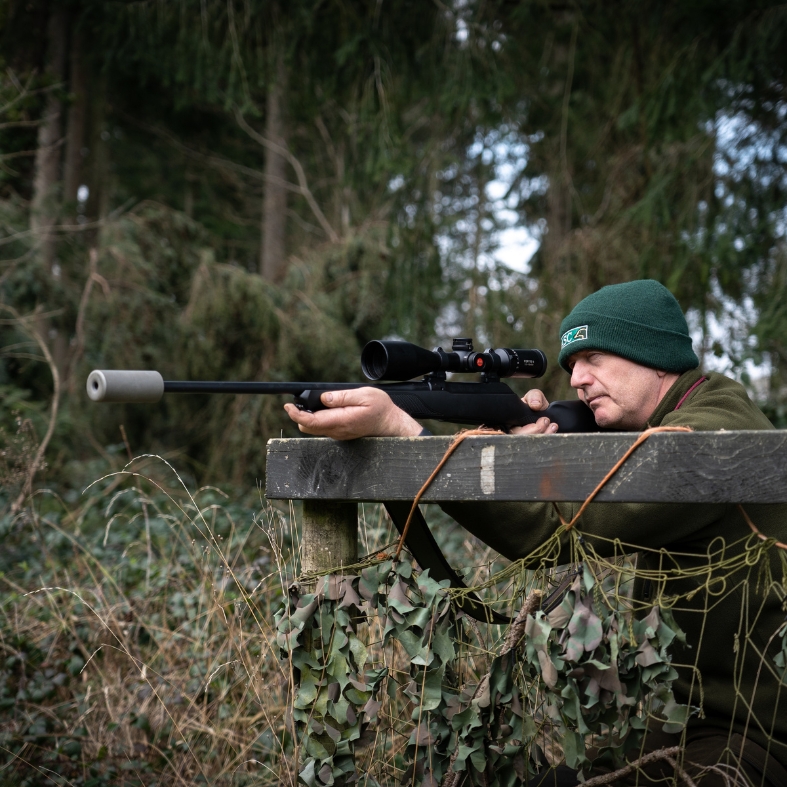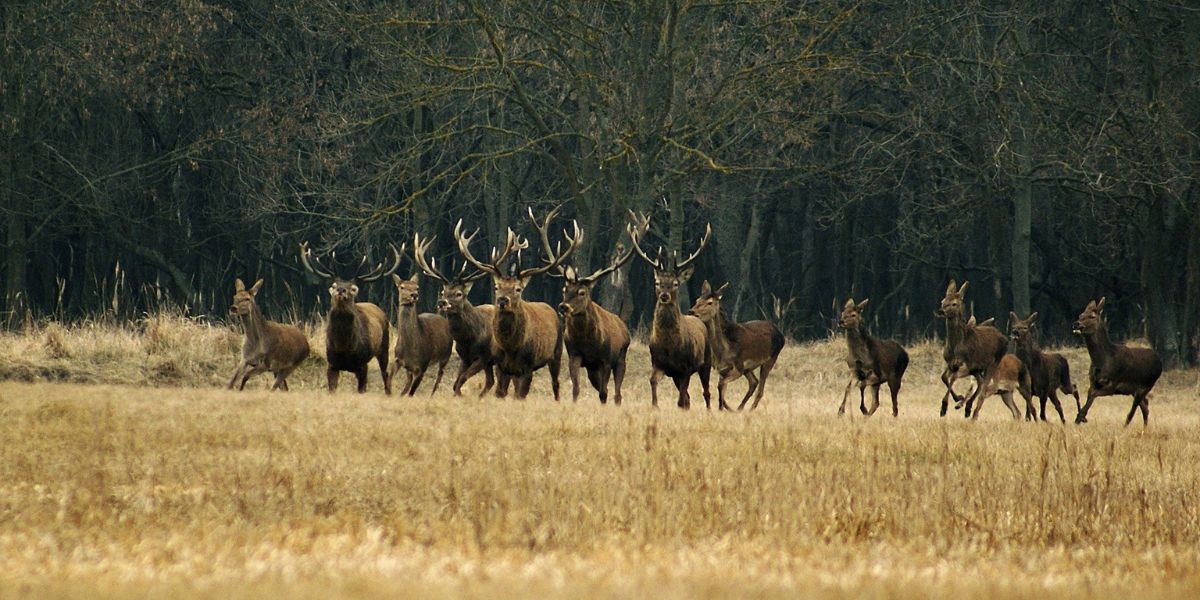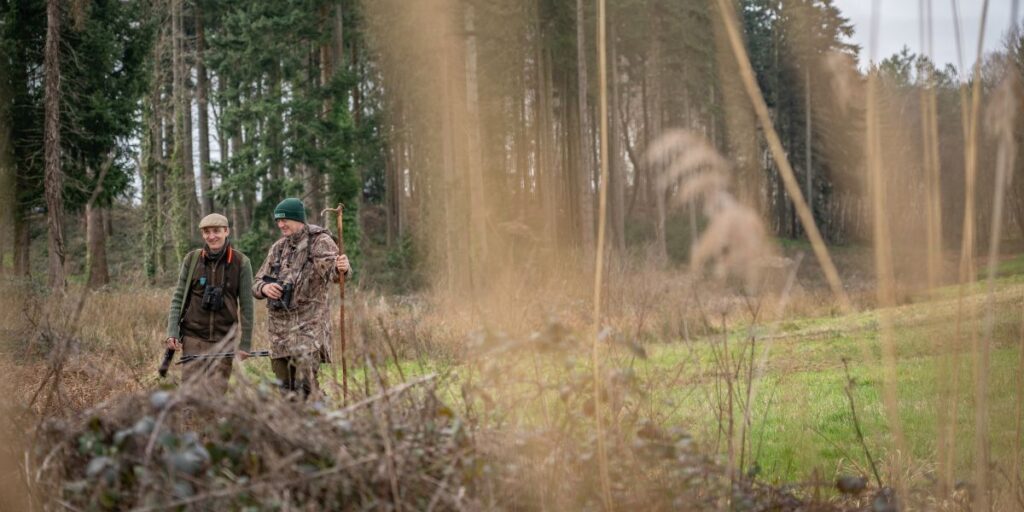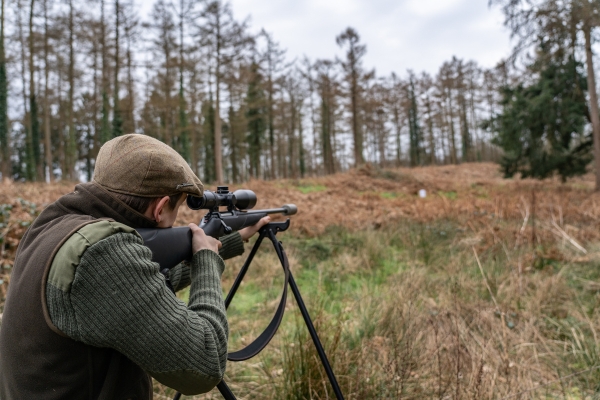
MSPs told rough shooting at risk without exception
BASC is lobbying for an amendment to the Hunting with Dogs (Scotland) Bill to protect rough shooting.
Get information on the legal shooting season for mammals and birds in the UK.
Apply for funding for your project or make a donation today
Comprehensive information and advice from our specialist firearms team.
Everything you need to know about shotgun, rifle and airgun ammunition.
Find our up-to-date information, advice and links to government resources.
Everything you need to know on firearms law and licensing.
All the latest news and advice on general licences and how they affect you.


BASC Scotland director, Peter Clark, warns that proposals in the Natural Environment Bill risk undermining deer management in Scotland with new barriers, unclear targets and a lack of financial support.
This week, I had the opportunity to give evidence to the Scottish Parliament’s Rural Affairs and Islands Committee on behalf of BASC Scotland. The session focused on the deer management elements of the Natural Environment (Scotland) Bill, and I left with serious concerns about the direction of travel.
Scotland’s deer managers, professional and recreational alike, are the backbone of efforts to balance ecology, economy, and community. But rather than support this dedicated community, the bill as it stands risks layering unclear expectations, burdensome regulation and barriers to participation at a time when the country needs its deer managers the most.

One of the most contentious parts of the bill is the proposal to introduce mandatory training for all deer stalkers in Scotland. At BASC, we believe that this change is unnecessary, unclear, and potentially damaging. BASC is the only organisation actively fighting against this proposal.
Self-regulation has maintained high standards across our sector for decades. Introducing a blanket requirement for everyone involved in deer management to be added to the ‘Fit and Competent’ register, with upfront training as a precondition, is not “deregulation”, as some have claimed. It is, in fact, regulation by another name.
The government has yet to clarify what the required level of training would be, how it would be delivered, or who would pay for it. For new entrants, this represents a significant barrier to entry, particularly at a time when the sector has an ageing demographic and urgently needs to attract new recruits.
Moreover, the bill offers no ‘grandfather rights’ to acknowledge the experience and proven competence of seasoned deer stalkers. That omission alone sends a message that long-standing practical knowledge is somehow less valid than ticking a box on a course.
Based on BASC estimates, if a minimum standard equivalent to Deer Stalking Certificate 1 (DSC1) were introduced across the board, the number of ‘compliant’ stalkers in Scotland could drop to 7,500 – a significant fall at a time when there is a demand for more deer management and cull targets are rising sharply.
Also at the heart of our concerns is the lack of clear criteria around proposed deer management powers. While we support measures to promote biodiversity and protect Scotland’s landscapes, the Bill leaves too much room for interpretation around what constitutes “nature restoration” and how success will be measured. This opens the door to subjective enforcement, confusion on the ground, and potential legal disputes, all of which detract from the real work that needs doing. We need to see clear and credible examples of what the Scottish Government propose as ‘nature restoration’ efforts and how this relates to deer management.
If the Government wants to set ambitious goals for deer culls and nature recovery, it must pair those ambitions with transparent targets, clear timelines, and critically, sufficient financial incentives. At present, there is no mention of how additional costs will be covered, or how communities will be empowered to deliver on these expectations.
We risk seeing this all being developed after the Bill has passed, in the format of secondary legislation, which is not subjected to full parliamentary scrutiny.

BASC Scotland represents more than 5,500 members actively involved in deer management, from the highlands to the lowlands. These individuals are already helping to balance deer populations, enhance habitats and produce sustainable wild venison. Their work aligns with Scotland’s environmental and food policy goals.
We’ve long advocated for a community-integrated approach which utilises local recreational stalkers to achieve outcomes that are cost-effective. This would reduce the cost to the taxpayer of contracts issued by FLS on the publicly owned forestry estate. A simple Scandinavian approach would work well here. Yet this approach is largely ignored in the current legislation. It’s a missed opportunity.
If Scotland wants to increase the number of deer culled each year, then it must ensure the venison supply chain is equipped to handle the additional volume. That means investment in community larders, cold storage facilities, and local processing capacity, particularly in rural areas where access is most limited.
Without that investment, we risk creating a bottleneck – more deer shot but nowhere to take them, leading to waste, frustration and loss of public trust.
I want to be absolutely clear – BASC is not opposed to change. We want to be part of the solution. But we also want to ensure that good intentions do not result in poor outcomes.
We stand ready to work with the Scottish Government and its agencies to deliver effective deer management across the country. But success will only come if the bill recognises what’s already working, respects the knowledge of those in the field, and avoids creating barriers that shrink participation at the very moment we need it to grow.
Scotland needs more deer stalkers, not fewer. It needs better financial support for deer managers and an expanded infrastructure to cope with increased culls.
What it doesn’t need is more regulation and barriers put in place.


BASC is lobbying for an amendment to the Hunting with Dogs (Scotland) Bill to protect rough shooting.

Wild venison provided by BASC-trained deer stalkers aligns with Labour’s commitment to sourcing food with minimal environmental impact.
